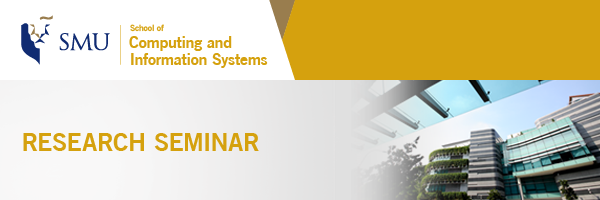| |
 Q-Heart: ECG Question Answering via Knowledge-Informed Multimodal LLMs Q-Heart: ECG Question Answering via Knowledge-Informed Multimodal LLMs Speaker (s): 
PHAM Hung Manh
PhD Candidate
School of Computing and Information Systems
Singapore Management University
| Date: Time: Venue: | | 15 October 2025, Wednesday 2:00pm – 2:15pm Meeting room 5.1, Level 5
School of Computing and
Information Systems 1,
Singapore Management University,
80 Stamford Road, Singapore 178902 We look forward to seeing you at this research seminar. Please register by 13 October 2025.  |
|
About the Talk Electrocardiography (ECG) offers critical cardiovascular insights, such as identifying arrhythmias and myocardial ischemia, but enabling automated systems to answer complex clinical questions directly from ECG signals (ECG-QA) remains a significant challenge. Current approaches often lack robust multimodal reasoning capabilities or rely on generic architectures ill-suited for the nuances of physiological signals. We introduce Q-Heart, a novel multimodal framework designed to bridge this gap. Q-Heart leverages a powerful, adapted ECG encoder and integrates its representations with textual information via a specialized ECG-aware transformer-based mapping layer. Furthermore, Q-Heart leverages dynamic prompting and retrieval of relevant historical clinical reports to guide tuning the language model toward knowledge-aware ECG reasoning. Extensive evaluations on the benchmark ECG-QA dataset show Q-Heart achieves state-of-the-art performance, outperforming existing methods by a 4% improvement in exact match accuracy. Our work demonstrates the effectiveness of combining domain-specific architectural adaptations with knowledge-augmented LLM instruction tuning for complex physiological ECG analysis, paving the way for more capable and potentially interpretable clinical patient care systems.
This is a Pre-Conference talk for 28th European Conference on Artificial Intelligence (ECAI 2025). About the Speaker PHAM Hung Manh is a Ph.D. candidate under the supervision of Prof. Dong MA, with research interests in Deep Learning and Mobile Computing. His recent work explores self-supervised learning, multimodal generative modeling, and large language models, with a focus on advancing efficient digital health. |